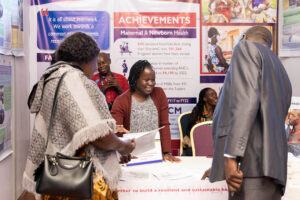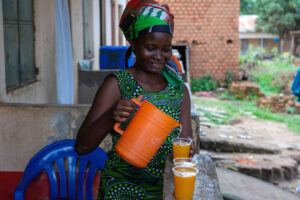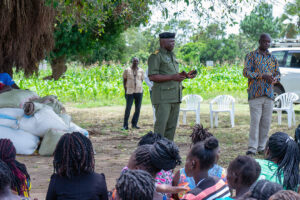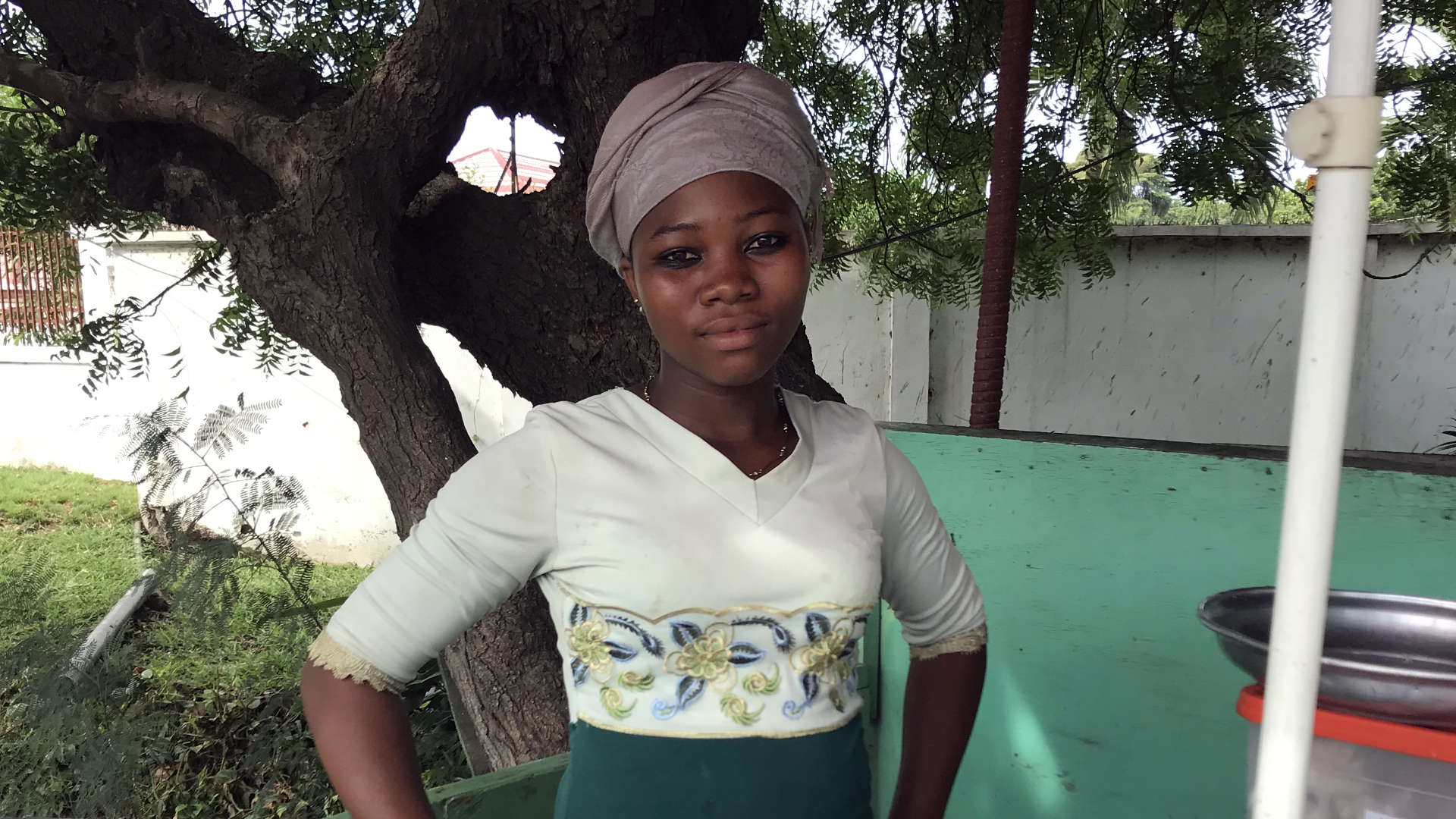
Adolescent Health
An adolescent girl in Ghana. Photo credit: Liz Nugent
Adolescent Health
Globally, adolescents (age 10-19 years) make up 16% of the world’s population. But in some regions – notably sub-Saharan Africa – adolescents account for 23% of the population. This sizeable and important group has unique health needs that require targeted interventions and supportive health services.
Regardless of their country or culture, adolescents globally all transition through a developmental stage marked by rapid biological, cognitive, social, and emotional changes that shape their future health and well-being. Both biological and social factors contribute to vulnerability in adolescence, particularly for girls. Early and forced marriage, gender-based violence, lack of education, and poverty – contribute to poor adolescent health outcomes including adolescent pregnancy, malnutrition, infectious diseases including HIV, and poor mental health. For 15- to 19-year-old girls globally, complications during pregnancy and childbirth are a leading cause of death.
A youth-led and multi-sectoral, coordinated response is crucial to improving adolescent health. Critical approaches include:
- Involve adolescents in the design, implementation, and monitoring of activities and services;
- Support civil society organizations and ministries of health to develop, modify, implement, and disseminate policies and guidelines that support best practices in adolescent health;
- Use different channels to reach adolescents, such as private sector providers, mobile outreach, social media and digital platforms, pharmacies and drug shops, and peer groups;
- Address provider bias and enrich providers understanding of adolescence;
- Integrate services to offer comprehensive quality care;
- Support the collection of data disaggregated by age and gender; and
- Address financial barriers to adolescent care-seeking.
An adolescent-responsive health system approach ensures that health services are accessible and relevant to adolescents while remaining integrated with service delivery at large. By facilitating partnerships with youth groups to design, implement, and monitor adolescent-friendly health services, adolescents can be empowered to acquire skills, achieve goals, and boost physical and emotional health and resiliency.
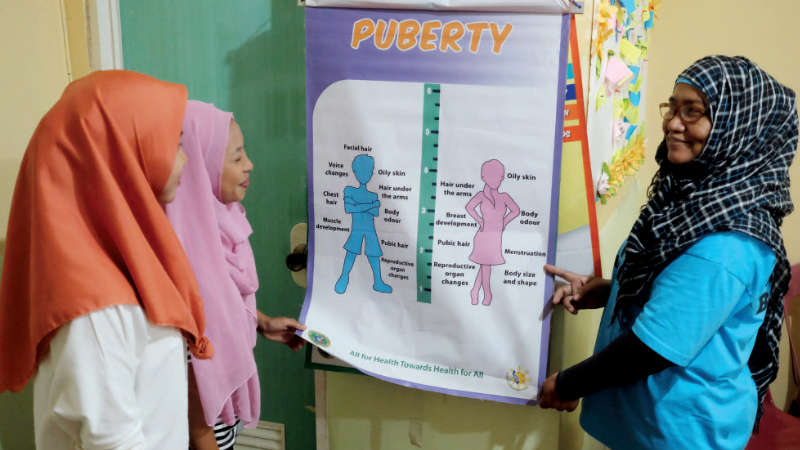
URC has addressed the unique vulnerabilities of adolescents throughout many of our projects. In Niger, URC worked to reduce the rate of child marriage under the Resilience and Economic Growth in the Sahel – Enhanced Resilience (REGIS-ER) Project. URC has supported orphans and vulnerable children impacted by HIV through our PEPFAR work in sub-Saharan Africa, and improved adolescent-friendly health services through behavior change packages introduced under our global ASSIST Project.
The Health Evaluation and Applied Research Development (HEARD) Project uses implementation science and strategic partnerships with more than 35 diverse global organizations to improve the implementation of evidence-based practices, interventions, and policies. The HEARD Project conducted research to identify urban youth challenges and best practices for targeting this population with health interventions.
Adolescents who live with HIV can enroll in a one-week Warriors Camp organized by the Regional Health Integration to Enhance Services in East Central Uganda Activity (RHITES-EC) and Makerere University – Johns Hopkins Research Collaboration’s Young Generation Alive Warriors’ Camps. The fight to achieve viral load suppression among HIV-positive adolescents in East Central Uganda. The camp provided a platform for participants to share experiences with HIV care and treatment and express the challenges they face in adhering to treatment and achieving viral suppression.
The Regional Health Integration to Enhance Services in North, Acholi (RHITES-N, Acholi Activity focuses on strengthening the health system to increase access to and use of quality health services. Activity work with the DREAMS (Determined, Resilient, Empowered, AIDS-free, Mentored and Safe) partnership resulted in the proportion of adolescent girls experiencing sexual and other forms of gender-based violence decreasing from 49% at baseline to 19.5% and an HIV incidence rate well below the national rate.
The Bangsamoro Autonomous Region in Muslim Mindanao for Health (BARMMHealth) Project in the Philippines bolsters Ministry of Health capacity to facilitate local health solutions in family planning, adolescent and youth reproductive health, and maternal and child health to support self-reliance and sustainability. Since 2019, over 41,000 adolescents have sought sexual reproductive health services and information at facilities with dedicated adolescent-friendly spaces.
USAID RenewHealth in the Philippines is leading efforts to bring awareness to adolescents on the effects of substance use on their health through a community-based drug rehabilitation program developed to help Children Who Use Drugs (CWUD) in their recovery from substance use. The approach focuses awareness of thoughts and emotions, understanding of internal and external triggers, refusal skills, and relationships with families and peers. The program brings together parents or family members as part of treatment sessions. By including the family, the protective factors at home and in the community are strengthened to ensure the CWUD’s sustainable recovery. RenewHealth is working to empower the CWUDs and their families to improve overall health, well-being, and quality of life.
